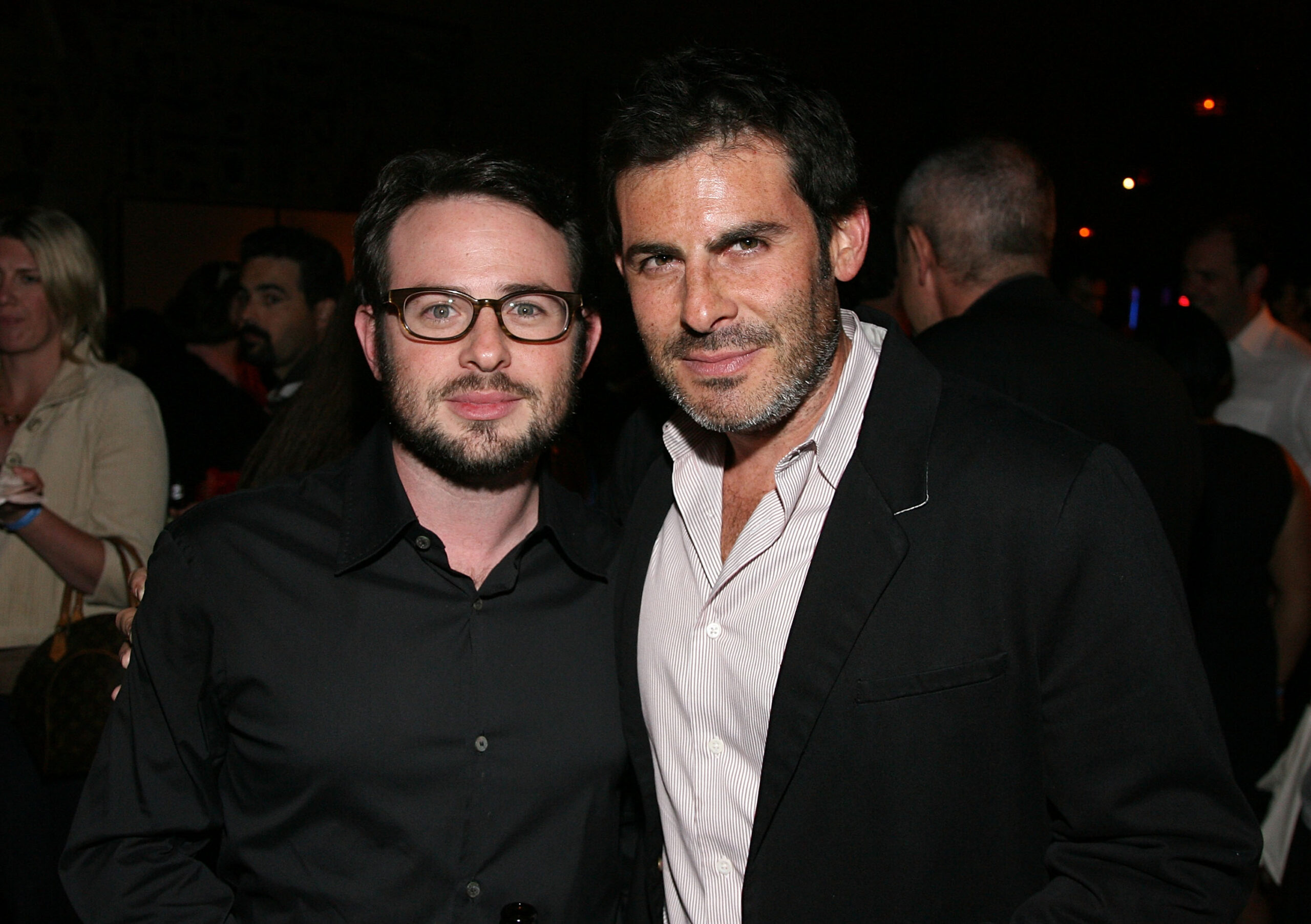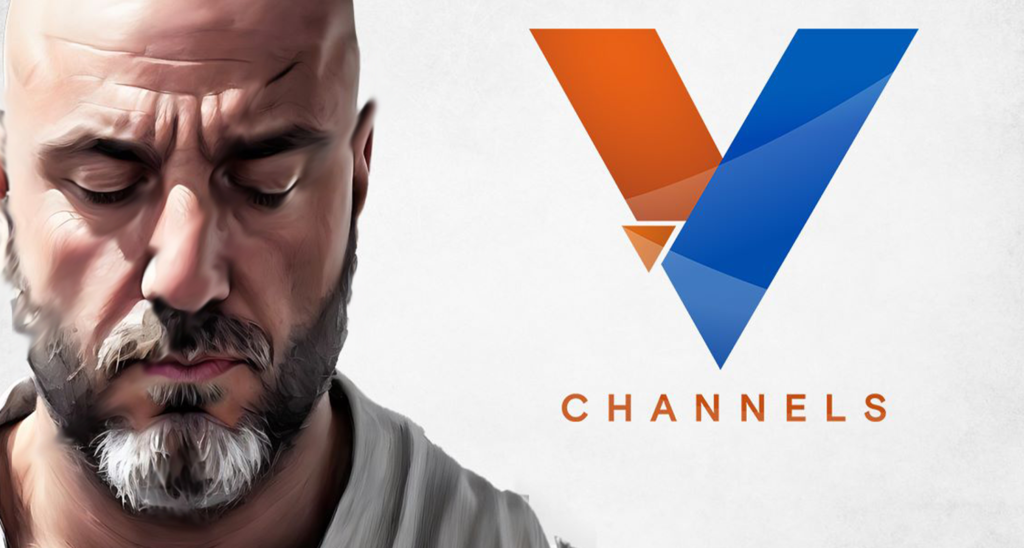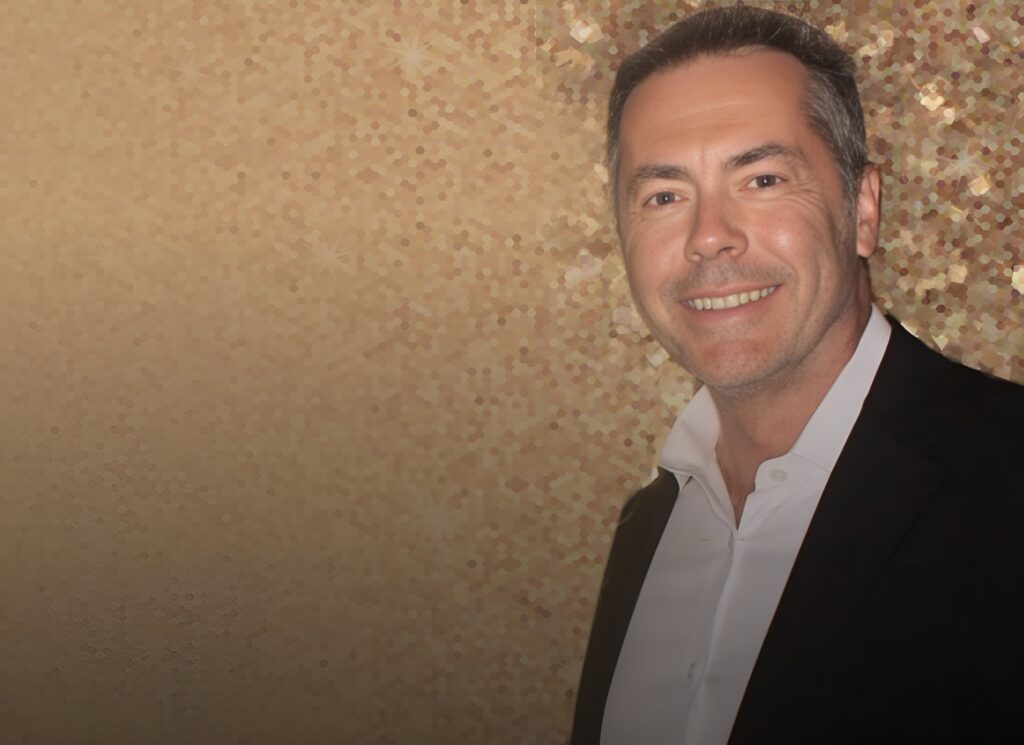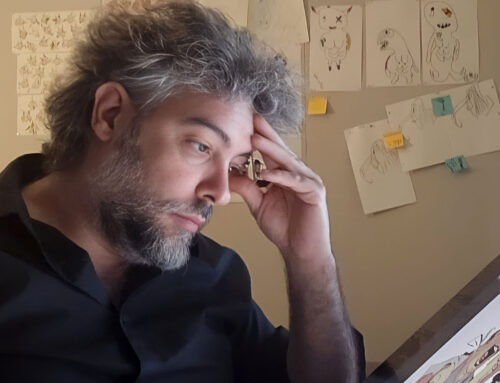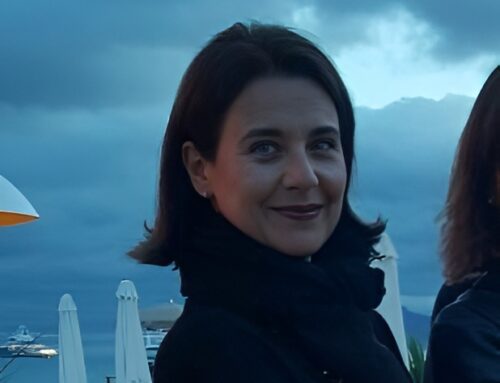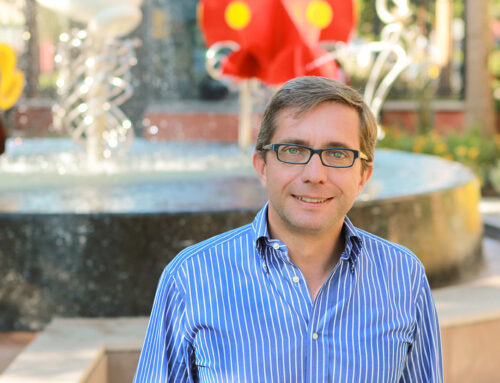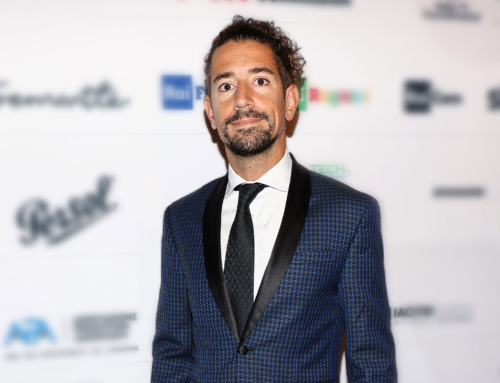Sean and Bryan Furst
Independent movie producers, TV producers, IP hunters, storytelling junkies… and brothers. Those are, in a nutshell, the adjectives describing Sean and Bryan Furst.
The Fursts started in the Nineties with such pictures as Miramax’s hitman drama “The Matador”, which earned Pierce Brosnan a Golden Globe nomination, and Lionsgate’s Vegas love story “The Cooler,” which earned Alec Baldwin an Oscar nomination. Then, with the market shifting emphasis towards TV, they added another facet to their business and soon produced shows like Showtime’s “Dice” and the CW’s “Star Crossed”. Their newest incarnation now has them traveling the globe, setting their sights on the international market, producing premium, local-language scripted series abroad meant for worldwide viewership. The most recent Furst-produced projects include the Universal Pictures feature film “Renfield”, scripted by Robert Kirkman and Ryan Ridley with Nicolas Cage, Nicholas Hoult and Awkwafina, “Demon in the White House” for Discovery, the podcast (and soon to be scripted series), “Impact Winter”, and an ambitious project about the founding of Greenpeace to be written by Bill Collage (“Emancipation”) and directed by Marc Forster (“Finding Neverland”, “World War Z”).
Sean Furst: We started when the most exciting part of the business was independent films when Sundance and the big festivals were launching some of the most exciting movies you could see in a theater. It was a time when a lot of independent and mini-majors distribution companies were around. It was a vibrant domestic business but also a prosperous international trade, and that’s how we got our movies made and learned to produce films outside the studio system.
How?
Sean: Following a presales model, which was how most independent films were made. If you couldn’t find somebody who was going to write a check for your whole budget, you would put your movie together: the script, the filmmaker, the cast, and the plan, and you would go to a market or festival and you would pre-sell the right to your movie around the world. You would sell it to as many countries as you needed to to get your film founded but not more than that because that allowed you to retain your rights, the ownership of the IP (Intellectual property).
Then you went from being prolific independent film producers (some of your movies were nominated for Oscars and Golden Globes) to television tv-series producers.
Sean: Bryan and I took a giant leap into the television business. It was around 2009 and started not our entire focus. Still, a considerable part of our job started aiming at the television business, building good relationships. We made a couple of television series, which was an excellent experience for us, and we learned that side of the business.
Was the TV market easier to approach?
Sean: Nothing is easy. We’re so lucky to be able to do this. We love storytelling and working with creative people, but it’s competitive. So many people compete for a finite amount of resources and distribution slots. It doesn’t matter if you’re in the film or television space. It’s all very competitive. But there was a window, which has gone away, where there were so many buyers in the television space: networks, basic cable with pay-tv, and streaming services. So there were dozens and dozens of outlets where you could sell television products. Now it is shrunk down.
Even with all those streaming services, we have now?
Sean: What happened is that all those streaming services have consolidated their assets under this one platform. For example, Paramount has MTV, Nickelodeon, CBS, and Showtime, and now they’re all under the Paramount plus group. Most streamers with a legacy as broadcasters have done the same. It’s a different landscape. Bryan and I must look ahead, identify the trends to evolve our business and try to be ahead of that. Never behind.
And you looked abroad.
Bryan: We saw many opportunities outside the United States to work in the television space and partner with local creators and producers in some of the world’s biggest and most exciting markets. There is creativity, but also real financial upside as business people. One of the most exciting evolutions of streaming television is that the world as a whole, at one time, can watch the same show, which has never happened before. We love that opportunity.
You are working a lot in the Italian market.
Sean: Yes, we have a lot of business in Italy. I credit the Italian entertainment industry for being one of the most aggressive players in the international co-production market. And reaching out outside of the country to foster and nurture new relationships between creators and producers in Italy and people like us, so we’ve been the beneficiaries of that outreach, and we have several projects in Italy. We’re working with some of the biggest broadcasters in the country and some of the most well-known creators. Pretty soon, we’ll be able to announce what those are.
What is your favorite Italian tv show?
Sean: I think Gomorra was the first TV show indicative of this sea change in Italian storytelling. It was the first of many excellent new TV shows coming out of Italy. Still, it was the first one we had access to here, in the United States, that presented modern storytelling and felt rich, characterdriven, and sophisticated. Bryan: Obviously, that was terrific, but recently I’ve been into “Bang bang baby.” It’s intelligent, funny, dark, and stylish, all of these things that hit my buttons. So fresh and fun.
Can events like MIA and ITTV Forum&Festival help to build a bridge between markets?
Sean: They can function in several ways. First, just creating awareness that collaboration between the United States, Italy, and other markets is possible. It’s an opportunity for people to hear about how others are doing, it’s an opportunity to connect with Italians in a form that is unique in Los Angeles, and it’s also an opportunity to help Hollywood creatives to communicate with Italy. There is an awakening right now surrounding the opportunities outside the United States, and it’s great to have the possibility to cut the line a little bit and not have to go through five years of travel and explorations as we did in the past.
Let’s talk about your story. How did you guys start?
Bryan: Sean started by putting together independent films. I graduated from school and was looking for something to do over the summer and ended up working on one of Sean’s first movies on the crew. That evolved when the movie got into Sundance. We sold the project there, but the company we sold it to went out of business, so we distributed the film ourselves. It was a little movie called Everything Put Together. We learned how to distribute, make all the marketing material, the press kits, ship the reels around the country, etcetera. It happened unexpectedly, but by that time, I got fascinated by that side of the business, and we just kept going. First-time filmmakers were the target of our business. After a while, some folks with whom we had made a movie approached us. They were starting their movie studio with a different approach from the competition. It was Overture Films. They wanted to bring in independent producers to build a different model and culture.
We didn’t plan to become studio executives, but it felt like an opportunity we couldn’t say no to. After a few years, we were asked to join a company named Skybound. Robert Kirkman, who created the original comic book The Walking Dead, was the guy behind the company. He built a unique business model retaining all the non-tv rights for The Walking Dead franchise. When the show became a huge success, he made a multi-platform media company: comic book publishing, video games, and podcasts. For us, it was another exciting opportunity. So we spent half a dozen years at Skybound learning the IP Business, how to work with Creative adapting IP, Learning how to leverage the value of IP in a marketplace that started to value it more and more. Our curiosity in the international market came handly. It was an opportunity to unlock value in ways that, as the marketplace contracted in the United States, it was opening up overseas. And so we started to go to the international markets. We made some mistakes along the way, but it was an exciting place to be.
Adapting is the secret?
Bryan: It is in every business. As important as it is to follow your creative instinct, it’s also essential to understand the business behind it and how all these great stories are made and adapt accordingly.
How about siblings working together? Is it easy or the opposite?
Bryan: For Sean, it is easy.
Sean: Bryan and I credit our parents. We have always gotten along well, and creatively we are likeminded. I guess that’s a function of working together for so long, being communicative, and finding commonality in processes and ideas. If we are at odds about something, we tend not to pursue it, but generally, we gravitate towards the same creative ideas. It’s just lucky that way: we don’t fight often.
What’s the recipe for the perfect TV show or movie?
Bryan: if there were one, we wouldn’t have a job. The stories that tend to capture people’s imagination are the ones that break the rules, so there is no exact recipe for telling stories that move people and connect with the audience. Like “Squid game,” for example, it’s impossible to build that formula in a laboratory. It was a vision, and there was nothing that you could point to that made it seem like a safe bet, and that’s why people connected to it because it spells so fresh and different and dangerous and exciting.
Sean: That said, I think there are three things that we can generally look for: Number one: as Bryan said, how did it break the rule? How did it break convention? How is it unique? Number two: is it fun? How do we make the most enjoyable and entertaining version of the story? At the end of the day, we’re still entertaining people. We want them to come back for more. We don’t want them to feel pain when they watch our shows. We want them to feel drawn in, stimulated, and excited, and that’s why we tend to gravitate towards genres because the tools are there to push the audience in different directions, be provocative and funny, and be titillating. Number three: how does the story reflect our own lives so we can see ourselves in the characters, but we can also be taken on a journey by these characters and come out the other side having learned something, having evolved in some way? Those are the three aspects I tend to look for.
You have a project you care about a lot regarding Greenpeace.
Sean: That has been a passion project for some time. It’s tricky because, like any story about a crucial contemporary issue of our times, it becomes politicized, and that’s not the version we want to tell. We want to tell the story of the people behind that movement, what they were able to accomplish, and how they were able to do that. It’s one of the most important projects we are working on, so we want to get it right. We’re going to make a feature film, hopefully, next year.
Share:
Independent movie producers, TV producers, IP hunters, storytelling junkies… and brothers. Those are, in a nutshell, the adjectives describing Sean and Bryan Furst.
The Fursts started in the Nineties with such pictures as Miramax’s hitman drama “The Matador”, which earned Pierce Brosnan a Golden Globe nomination, and Lionsgate’s Vegas love story “The Cooler,” which earned Alec Baldwin an Oscar nomination. Then, with the market shifting emphasis towards TV, they added another facet to their business and soon produced shows like Showtime’s “Dice” and the CW’s “Star Crossed”. Their newest incarnation now has them traveling the globe, setting their sights on the international market, producing premium, local-language scripted series abroad meant for worldwide viewership. The most recent Furst-produced projects include the Universal Pictures feature film “Renfield”, scripted by Robert Kirkman and Ryan Ridley with Nicolas Cage, Nicholas Hoult and Awkwafina, “Demon in the White House” for Discovery, the podcast (and soon to be scripted series), “Impact Winter”, and an ambitious project about the founding of Greenpeace to be written by Bill Collage (“Emancipation”) and directed by Marc Forster (“Finding Neverland”, “World War Z”).
Sean Furst: We started when the most exciting part of the business was independent films when Sundance and the big festivals were launching some of the most exciting movies you could see in a theater. It was a time when a lot of independent and mini-majors distribution companies were around. It was a vibrant domestic business but also a prosperous international trade, and that’s how we got our movies made and learned to produce films outside the studio system.
How?
Sean: Following a presales model, which was how most independent films were made. If you couldn’t find somebody who was going to write a check for your whole budget, you would put your movie together: the script, the filmmaker, the cast, and the plan, and you would go to a market or festival and you would pre-sell the right to your movie around the world. You would sell it to as many countries as you needed to to get your film founded but not more than that because that allowed you to retain your rights, the ownership of the IP (Intellectual property).
Then you went from being prolific independent film producers (some of your movies were nominated for Oscars and Golden Globes) to television tv-series producers.
Sean: Bryan and I took a giant leap into the television business. It was around 2009 and started not our entire focus. Still, a considerable part of our job started aiming at the television business, building good relationships. We made a couple of television series, which was an excellent experience for us, and we learned that side of the business.
Was the TV market easier to approach?
Sean: Nothing is easy. We’re so lucky to be able to do this. We love storytelling and working with creative people, but it’s competitive. So many people compete for a finite amount of resources and distribution slots. It doesn’t matter if you’re in the film or television space. It’s all very competitive. But there was a window, which has gone away, where there were so many buyers in the television space: networks, basic cable with pay-tv, and streaming services. So there were dozens and dozens of outlets where you could sell television products. Now it is shrunk down.
Even with all those streaming services, we have now?
Sean: What happened is that all those streaming services have consolidated their assets under this one platform. For example, Paramount has MTV, Nickelodeon, CBS, and Showtime, and now they’re all under the Paramount plus group. Most streamers with a legacy as broadcasters have done the same. It’s a different landscape. Bryan and I must look ahead, identify the trends to evolve our business and try to be ahead of that. Never behind.
And you looked abroad.
Bryan: We saw many opportunities outside the United States to work in the television space and partner with local creators and producers in some of the world’s biggest and most exciting markets. There is creativity, but also real financial upside as business people. One of the most exciting evolutions of streaming television is that the world as a whole, at one time, can watch the same show, which has never happened before. We love that opportunity.
You are working a lot in the Italian market.
Sean: Yes, we have a lot of business in Italy. I credit the Italian entertainment industry for being one of the most aggressive players in the international co-production market. And reaching out outside of the country to foster and nurture new relationships between creators and producers in Italy and people like us, so we’ve been the beneficiaries of that outreach, and we have several projects in Italy. We’re working with some of the biggest broadcasters in the country and some of the most well-known creators. Pretty soon, we’ll be able to announce what those are.
What is your favorite Italian tv show?
Sean: I think Gomorra was the first TV show indicative of this sea change in Italian storytelling. It was the first of many excellent new TV shows coming out of Italy. Still, it was the first one we had access to here, in the United States, that presented modern storytelling and felt rich, characterdriven, and sophisticated. Bryan: Obviously, that was terrific, but recently I’ve been into “Bang bang baby.” It’s intelligent, funny, dark, and stylish, all of these things that hit my buttons. So fresh and fun.
Can events like MIA and ITTV Forum&Festival help to build a bridge between markets?
Sean: They can function in several ways. First, just creating awareness that collaboration between the United States, Italy, and other markets is possible. It’s an opportunity for people to hear about how others are doing, it’s an opportunity to connect with Italians in a form that is unique in Los Angeles, and it’s also an opportunity to help Hollywood creatives to communicate with Italy. There is an awakening right now surrounding the opportunities outside the United States, and it’s great to have the possibility to cut the line a little bit and not have to go through five years of travel and explorations as we did in the past.
Let’s talk about your story. How did you guys start?
Bryan: Sean started by putting together independent films. I graduated from school and was looking for something to do over the summer and ended up working on one of Sean’s first movies on the crew. That evolved when the movie got into Sundance. We sold the project there, but the company we sold it to went out of business, so we distributed the film ourselves. It was a little movie called Everything Put Together. We learned how to distribute, make all the marketing material, the press kits, ship the reels around the country, etcetera. It happened unexpectedly, but by that time, I got fascinated by that side of the business, and we just kept going. First-time filmmakers were the target of our business. After a while, some folks with whom we had made a movie approached us. They were starting their movie studio with a different approach from the competition. It was Overture Films. They wanted to bring in independent producers to build a different model and culture.
We didn’t plan to become studio executives, but it felt like an opportunity we couldn’t say no to. After a few years, we were asked to join a company named Skybound. Robert Kirkman, who created the original comic book The Walking Dead, was the guy behind the company. He built a unique business model retaining all the non-tv rights for The Walking Dead franchise. When the show became a huge success, he made a multi-platform media company: comic book publishing, video games, and podcasts. For us, it was another exciting opportunity. So we spent half a dozen years at Skybound learning the IP Business, how to work with Creative adapting IP, Learning how to leverage the value of IP in a marketplace that started to value it more and more. Our curiosity in the international market came handly. It was an opportunity to unlock value in ways that, as the marketplace contracted in the United States, it was opening up overseas. And so we started to go to the international markets. We made some mistakes along the way, but it was an exciting place to be.
Adapting is the secret?
Bryan: It is in every business. As important as it is to follow your creative instinct, it’s also essential to understand the business behind it and how all these great stories are made and adapt accordingly.
How about siblings working together? Is it easy or the opposite?
Bryan: For Sean, it is easy.
Sean: Bryan and I credit our parents. We have always gotten along well, and creatively we are likeminded. I guess that’s a function of working together for so long, being communicative, and finding commonality in processes and ideas. If we are at odds about something, we tend not to pursue it, but generally, we gravitate towards the same creative ideas. It’s just lucky that way: we don’t fight often.
What’s the recipe for the perfect TV show or movie?
Bryan: if there were one, we wouldn’t have a job. The stories that tend to capture people’s imagination are the ones that break the rules, so there is no exact recipe for telling stories that move people and connect with the audience. Like “Squid game,” for example, it’s impossible to build that formula in a laboratory. It was a vision, and there was nothing that you could point to that made it seem like a safe bet, and that’s why people connected to it because it spells so fresh and different and dangerous and exciting.
Sean: That said, I think there are three things that we can generally look for: Number one: as Bryan said, how did it break the rule? How did it break convention? How is it unique? Number two: is it fun? How do we make the most enjoyable and entertaining version of the story? At the end of the day, we’re still entertaining people. We want them to come back for more. We don’t want them to feel pain when they watch our shows. We want them to feel drawn in, stimulated, and excited, and that’s why we tend to gravitate towards genres because the tools are there to push the audience in different directions, be provocative and funny, and be titillating. Number three: how does the story reflect our own lives so we can see ourselves in the characters, but we can also be taken on a journey by these characters and come out the other side having learned something, having evolved in some way? Those are the three aspects I tend to look for.
You have a project you care about a lot regarding Greenpeace.
Sean: That has been a passion project for some time. It’s tricky because, like any story about a crucial contemporary issue of our times, it becomes politicized, and that’s not the version we want to tell. We want to tell the story of the people behind that movement, what they were able to accomplish, and how they were able to do that. It’s one of the most important projects we are working on, so we want to get it right. We’re going to make a feature film, hopefully, next year.



